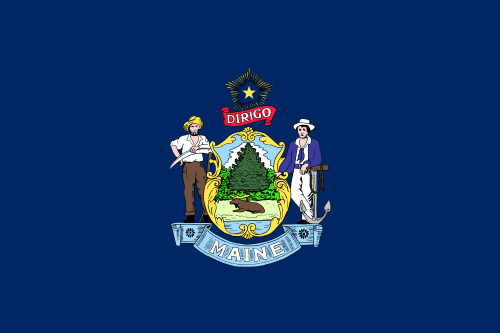In Maine, a campaign supporting a ballot initiative to limit the amount of campaign contributions to independent expenditure-only political action committees says that it has collected enough signatures to make the 2024 ballot.
Cara McCormick, chairperson of the Maine Citizens to End Super PACs, the campaign behind the initiative, said, “While we are still waiting to be certified by the Maine Secretary of State, I want to be the first to share with you that we have already collected enough signatures to place an anti-super PAC initiative on the ballot in 2024. This includes approximately 50 thousand signatures from Maine people on Election Day alone — likely a record.”
The initiative would limit the amount of campaign contributions to $5,000 from individuals and entities to PACs that only make independent expenditures—also known as super PACs. The laws that govern super PACs are different from the regulations of other PACs. These PACs can accept unlimited contributions and spend an unlimited amount supporting or opposing federal election candidates, but they cannot directly donate to federal candidates or parties.
In 1976, the United States Supreme Court ruled in Buckley v. Valeo that expenditure limits for political messaging violated the First Amendment, while restrictions on individual contributions did not violate the First Amendment. In 2010, two cases were heard at the Supreme Court that affected campaign finance contribution laws. In the Citizens United v. Federal Election Commission case, the Supreme Court ruled that corporate funding of independent political broadcasts in candidate elections cannot be limited, as doing so would violate the First Amendment. In the SpeechNOW.org v. Federal Election Commission case, the court ruled that individuals can contribute unlimited sums of money to political committees that make independent expenditures. This meant that individuals, corporations, and organizations could contribute unlimited sums of money to independent political speech.
Lawrence Lessig, who runs the non-profit EqualCitizens.US, which supported similar initiatives, said, “We’ve been trying to tee up this question to the Supreme Court for a long time.” According to Emma Davis, a reporter from States Newsroom, “the plan is to instigate a lawsuit with the ultimate goal of getting the Supreme Court to rule on super PACs … If enacted, the expectation is that legal groups will challenge it almost immediately. Regardless of how the district court in Maine rules, it would be appealed to the United States Court of Appeals for the First Circuit … If the First Circuit acts as Lessig anticipates, the Supreme Court could take it up and ultimately rule to rid the U.S. of super PACs.”
Anna Kellar, the executive director of Maine Citizens for Clean Elections, said she does not agree with the tactic of the proposed initiative. She said, “We do want to see a limitation on contributions to PACs, and we believe that the courts have wrongly decided cases that make those limits unconstitutional. However, we don’t currently see a path to the courts overturning those decisions, and we do see a real risk of getting distracted from the concrete gains that can be made here in Maine.”
Bradley A. Smith, former commissioner of the Federal Election Commission, said that super PACs increase competition and give voters more information. In an op-ed to U.S. News and World Report, he said, “Super PACs increase political spending, but while people like to complain about political spending, research shows that increased spending improves voter knowledge of candidates and issues. Indeed, political ads are frequently a better source of information for voters than news coverage.”
In 2023, Maine voters approved Question 2, another campaign finance-related ballot measure. Question 2 prohibited foreign governments, or entities with at least 5% foreign government ownership or control, from spending money to influence ballot measures or candidate elections. The measure was approved by 86.33%-13.67%.
Previous ballot measures in Arizona, Alaska, and Massachusetts that changed campaign finance laws were all approved by voters.
- In 2022, Arizona voters approved Proposition 211, which required that persons or entities that make an independent expenditure of $50,000 or more on a statewide campaign or $25,000 or more on a local campaign must disclose the names of the money’s original sources, defined as the persons or businesses that earned the money being spent.
- In 2020, Alaska voters approved Ballot Measure 2, which established open top-four primaries and ranked-choice voting in the state, as well as required persons and entities that contribute more than $2,000 that were themselves derived from donations, contributions, dues, or gifts to disclose the true sources (as defined by Measure 2) of the political contributions.
- In 2018, Massachusetts voters approved Question 2, which established a 15-member citizens’ commission to advocate for amendments to the United States Constitution regarding political spending.


